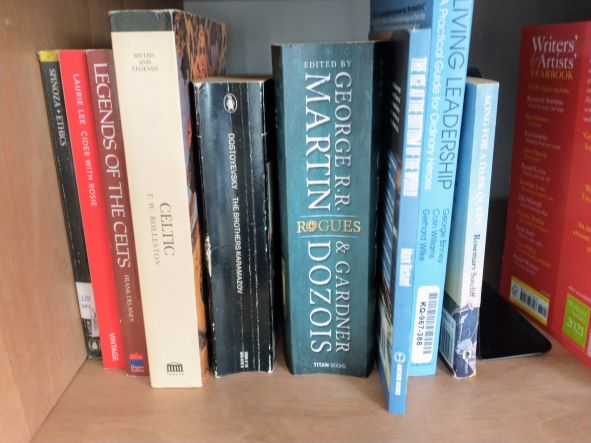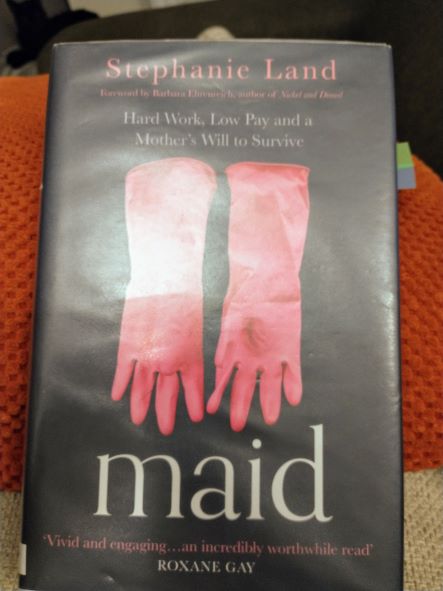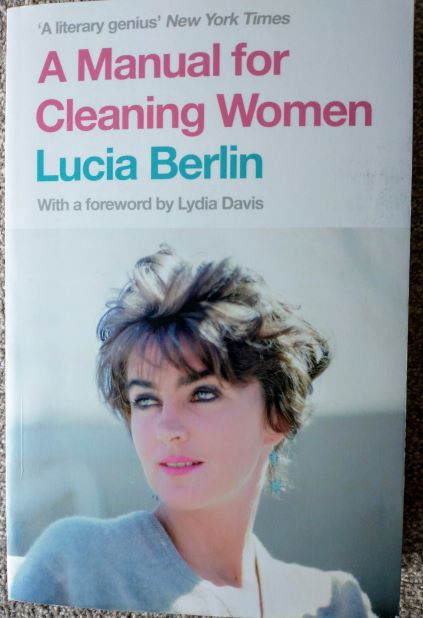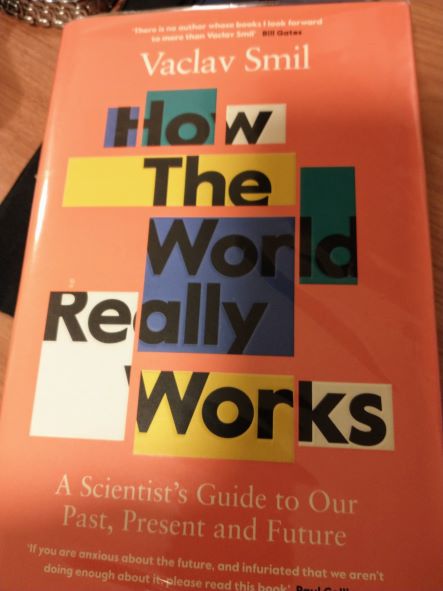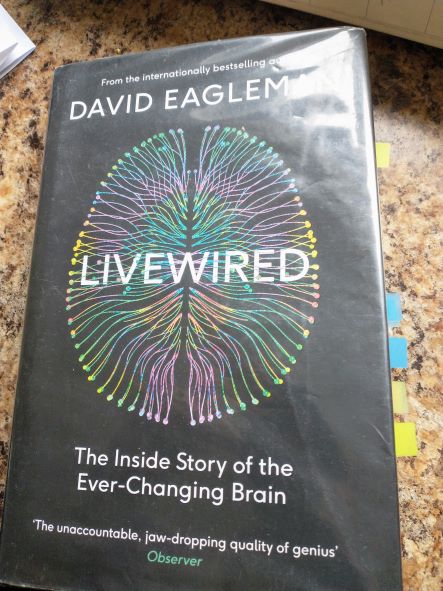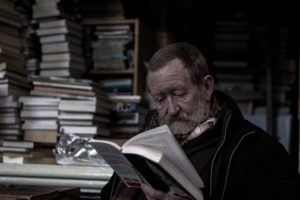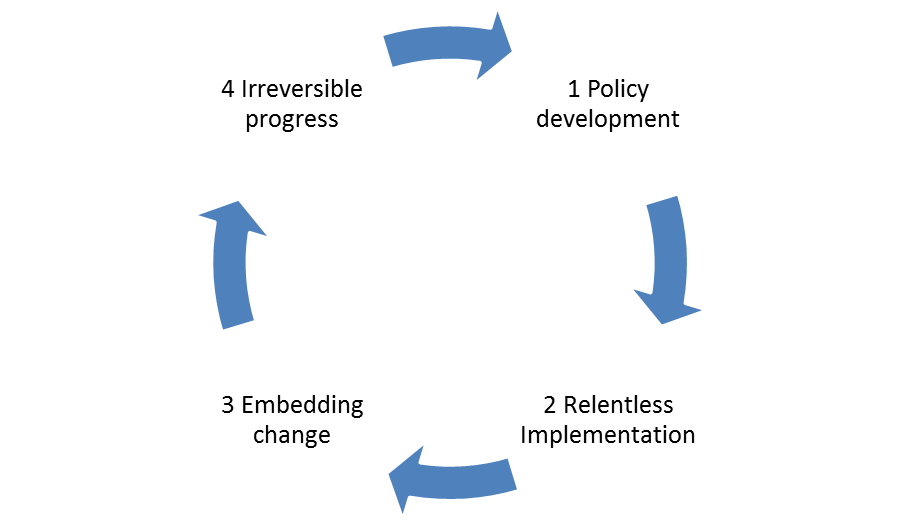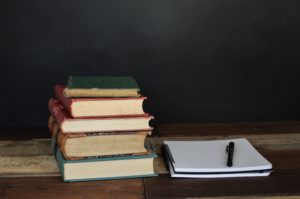Summer reading recommendations 2022
1 CommentIt’s that time of year: schools are breaking up, annual holidays are planned and the thought of sitting down with a good book comes to the minds of many people. My summer reading recommendations are taken from the 44 books I’ve read, so far, this year.
The reason I say the number is that I rarely take recommendations from people who read 1 or 2 books a year: how can they tell what is good or not? It is too easy to be swayed by the zeitgeist. If I recommend a book, it is because I think it will be worth your time.
I have read some crackers and some duds. However, writing a book, and then getting it published, are impressive efforts (having had my first novel rejected by 23 agents and publishers, I have more empathy). So, well done to all the authors listed below.
Top 5 non-fiction books.
- Atomic Habits: James Clear. A well-structured, well-written summary of a lot of different works that I have read and habits that I have adopted. Clear has put them all together in an excellent book.
- How the World Really Works: Vaclav Smil. Outstanding overview of what is important for humanity: food, energy, air, transportation of materials and goods. Myth busts useless forecasting and ideologies. He doesn’t come up with solutions but states facts that are essential to making informed decisions.
- Disorder: Helen Thompson. Outstanding overview of how our modern geopolitical mess had evolved. Thompson covers three areas: Fossil fuel dependency and the wars around it; financial and monetary policy of the Western democracies (above my brain capacity); and the failure of democracies and how they lead to an autocratic elite. Puts context into our everyday lives.
- A Writer’s Journal Workbook: Lucy Van Smit. Outstanding series of exercises and practices that helped me immensely find ‘my voice.’ I had low expectations and was pleased to be blown away. Truly wonderful and deep.
- Maid: Stephanie Land. An autobiographical account of a single mother trying to break out of the poverty trap. Superbly written, heart-warming, despairing and inspiring (you may have seen the Netflix series).
Top 5 fiction books
- Traveller at the Gates of Wisdom: John Boyne. A clever premise for a novel set over centuries of world history. I devoured this book and its writing. Truly original.
- Station Eleven: Hilary St John Mandel. Excellent, non-linear, novel about the aftermath of a global pandemic. Clever use of the shifts between times and the well-drawn characters.
- A Manual for Cleaning Women: Lucia Berlin. A superb collection of mainly autobiographical stories. An eye for detail, black humour, and stunning turns of phrase. Wonderful.
- Bleak House: Charles Dickens. A huge, entertaining novel set amongst a wide variety of people, situations and professions. Very rewarding.
- The End of the World and Other Catastrophes: Ed. Mike Ashley. A classic collection of SF short stories from familiar and unfamiliar authors. The Ray Bradbury one is frighteningly accurate.
Thanks
Thanks to Devon Libraries for their brilliant service. Libraries have had their funding cut drastically since 2010: they are brilliant institutions that allow people from all backgrounds the opportunity to read, explore, learn and stay warm in the darkness of winter.
Thanks to all the independent booksellers out there. If I order online, I get the book from Blackwell’s: they run an excellent service and more money goes to the deserving authors compared to the paltry sum that Amazon pays.
Thanks to Pete, Rob, Susann and Sarah for gifting me some of the books on this list: it is much appreciated. No present is more welcome than a good book.
The full list of books I have read this year and a brief summary.
- Bleak House: Charles Dickens. Huge, entertaining novel set amongst a wide variety of people, situations and professions. Very rewarding.
- Fires: Raymond Carver. A collection of essays, poems and sublime short stories. Here’s a writer that has lived a rugged, short life.
- Atomic Habits: James Clear. Well-structured, well-written summary of a lot of different works that I have read and habits that I have adopted. Clear has put them all together in an excellent book.
- The End of the World and Other Catastrophes: Ed. Mike Ashley. Classic collection of SF short stories from familiar and unfamiliar authors. The Ray Bradbury one is frighteningly accurate.
- Bowerman and the Men of Oregon: Kenny Moore. In-depth book that charts the rise of Oregon track and field and Nike. Starts with tales of Bowerman’s ancestors pioneering across the West, covers several Olympics and includes many anecdotes of runners and their training. Bowerman seems to be a Chuck Yeager-type character that forms part of the American myth.
- The Chequer Board: Nevil Shute. A novel set and written, in post-war Britain and Burma highlighting the lives of some ordinary people. More of a series of scenes than an overarching novel but tackles racism, religious bigotry and infidelity well.
- Traveller at the Gates of Wisdom: John Boyne. A clever premise for a novel set over centuries of world history. I devoured this book and its writing. Truly original.
- The Wave of my Mind: Ursula Le Guin. A collection of essays and speeches from this masterful writer.
- Consider Her Ways and Others: John Wyndham. Slipstream-themed short stories for the most part. A couple are satires about the objectification of women. Wyndham the feminist?
- The Killing Hills: Chris Offnut. A crime novel set in rural Kentucky with a Military Policeman protagonist. Good but the location is the best character.
- Station Eleven: Hilary St John Mandel. Excellent, non-linear, novel about the aftermath of a global pandemic. Clever use of the shifts between times and the well-drawn characters.
- Livewired: David Eagleman. Interesting research on neuroscience and how the brain adapts to its surrounds and stimuli.
- One Thing Leading to Another: Sylvia Warner Townsend. A collection of witty, sometimes fantastical, short stories. Old-fashioned writing still that is worth picking through to find some killer sentences.
- Beowulf and Sellic Spell: J.R.R. Tolkien, ed. Christopher Tolkien. The epic tale was translated and annotated. The tale is great, the annotations and lecture notes are dense and hard-graft but interesting. The supplemental tale and poems are good. Impressive.
- The Art of Impossible: Steven Kotler. A mish-mash of ideas gained from Ferris, Dweck, Duckworth and others. Some good points but not worth buying.
- A Manual for Cleaning Women: Lucia Berlin. Superb collection of mainly autobiographical stories. An eye for detail, black humour, stunning turns of phrase. Wonderful.
- Treeline: Ben Rawlence. Great tour around the arctic circle chronicling and detailing the different trees and the people around them.
- The High House: Jessie Greengrass. A well-written account of a small family surviving and preparing for a climate event that could happen to us all.
- How the World Really Works: Vaclav Smil. Outstanding overview of what is important for humanity: food, energy, air, transportation of materials and goods. Myth busts useless forecasting and ideologies. He doesn’t come up with solutions but states facts essential to making informed decisions.
- Follow the River: James Alexander Thorn. A fascinating and inspiring story about Mary Ingles’ escape from the Shawnee. Average novel though.
- How to Cook a Wolf: M.F.K. Fisher. Funny, dry and witty account of how to eat on a budget. Written in 1942 and revised 10 years later, it has useful tips for today.
- The Silver Branch: Rosemary Sutcliff. Children’s novel set in Roman Britain. Entertaining.
- A Writer’s Journal Workbook: Lucy Van Smit. Outstanding series of exercises and practices that helped me immensely find ‘my voice.’ I had low expectations and was pleased to be blown away. Truly wonderful and deep.
- Consider the Lobster: David Foster Wallace. Mind-bending, thought-provoking essays about a range of subjects. Dense footnotes require a magnifying glass! Interesting accounts on the McCain campaign trail, American English usage and talk show radio. Excellent.
- The Heisenberg Principle: Frank Herbert. Short SF novel about genetic engineering and immortality.
- 52 Ways to Walk: Annabel Streets. Well-researched series of short articles that are a welcome break from ‘step-counting.’ Some good ideas for those that like to get out.
- On Purpose Leadership: Dominick Quartuccio. A poor mishmash of soundbites and anecdotes. There are three or four good ideas but not worth a whole book.
- Ship of Strangers: Bob Shaw. Episodic SF novel. Easy to read and entertaining.
- Play Their Hearts Out: George Dohrmann. A sad, tragic and detailed account of a group of young basketball players who are exploited, and sold false dreams whilst their coach becomes a millionaire.
- On the Beach: Nevil Shute. Classic dystopian novel. The plot is excellent but the writing is a bit stilted.
- The British and Irish Short Story Handbook: David Malcolm. Published in 2010, this gives an overview of the development of the short story, its genres, major contributors and analysis of key works. Very useful to help find great authors and their works.
- The Constant Gardener: John Le Carre. Excellent thriller about Big Pharma in Africa and corruption within the British Government.
- Imagine If…: Ken Robinson and Kate Robinson. Enlightening and inspirational précis of Robinson’s work on creativity and education.
- The Thinking Body: Mabel Ellsworth Todd. A classic physiotherapist text from the 1930s. Lots of good analogies and ideas but little practical advice.
- Endless Shadow: John Brunner. Short, confusing, SF novel from 1964.
- The Arsenal of Miracles: Gardner F. Fox. Mish-mash SF novel from 1964, sexist by today’s standards and a far too convenient ending.
- How We Learn to Move: Rob Gray. Very good account of how athletes learn skills. Great case studies and research used.
- American Rust: Philipp Meyer. Family drama novel set in post-industrial Pennsylvania. Excellent exploration of the relationship between two friends who have to deal with the consequences of one mistake.
- Another Now: Yanis Varoufakis. A thinly disguised fiction piece about an alternative to our money-grubbing capitalist society. Thought-provoking.
- Write it all down: Cathy Rentzenbrink. Disappointing fluff about writing a memoir.
- How to be Animal: Melanie Challenger. A look at how humans are animals. Instead of exceptional beings with ‘souls’ and therefore no more important than any other being. Except to ourselves.
- Italian Folktales: Italo Calvino. Huge tome of traditional tales compiled and retold by Calvino. The footnotes are excellent. One to be read in chunks.
- Disorder: Helen Thompson. Outstanding overview of how our modern geopolitical mess had evolved. Thompson covers three areas: Fossil fuel dependency and the wars around it; financial and monetary policy of the Western democracies (above my brain capacity); and the failure of democracies and how they lead to an autocratic elite. Puts context into our everyday lives.
- Maid: Stephanie Land. An autobiographical account of a single mother trying to break out of the poverty trap. Superbly written, heart-warming, despairing and inspiring.
If you have any further suggestions, please leave them in the comments section below.
Happy reading.
My recommended reading list for sports coaches and p.e. teachers.


